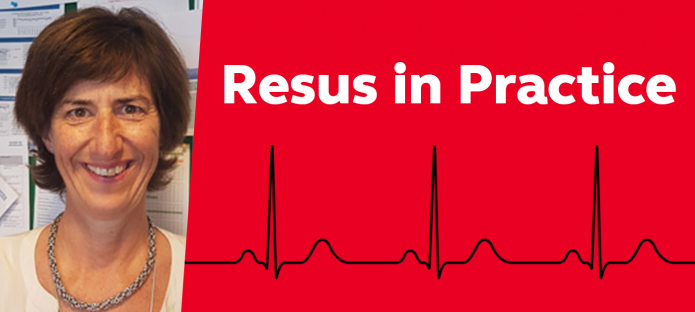Sarah hadn’t always planned on becoming a practising clinician.
She was studying medical law and ethics in the final year of her law degree in 2001 when she realised that she didn’t want to be in a courtroom representing patients - she wanted to be in a hospital looking after them. After graduating, she began to look for careers in the NHS and then went back to university for two further years to qualify as a Trainee Operating Department Practitioner (ODP).
Sarah has worked her way through an extensive career of patient care and education. She became an ALS provider as soon as she could, observed on ATLS, and undertook a huge range of CPD courses relating to the recognition and management of emergencies. She undertook a PG Cert in Advanced Surgical and Perioperative Care and continued to work in anaesthetics and then post-anaesthetic care with a special interest in Paediatrics. She trained as an instructor for the ALERT Course (Acute Life Threatening Emergencies Recognition and Treatment) and also volunteered as a Community First Responder for LIVES (Lincolnshire Integrated Voluntary Emergency Service) to attend cardiac arrests in her local area. After completing ALERT Instructor Training, she wanted more experience in education and obtained a post as a clinical educator in South Yorkshire.
She trained to deliver mandatory training trust-wide covering; health, safety and fire, manual handling and Basic Life Support, completed the NHS Leadership Academy Mary Seacole Programme and gained a Post-Graduate Certificate in Healthcare Leadership from the Open University. It was a time of great learning growth, but as much as Sarah enjoyed teaching and supporting staff, she missed direct patient contact.
With that in mind, Sarah decided to pursue a Surgical ACP post, as it would be an excellent way to develop her career while maintaining patient contact and building on her existing experience. She was thrilled to be successful in gaining a trainee ACP post in Trauma and Orthopaedics in October 2015 (a three-year full-time training programme funded by Health Education England.) She completed an MSc in Advanced Practice and is now an Advanced Clinical Practitioner (ACP) in Trauma and Orthopaedics at Hull Royal Infirmary. It’s a very thorough and varied path, with some emotional and difficult life-lessons along the way - including a patient promise while she was an Anaesthetic Practitioner which forever altered her approach to trauma patients.
A trauma call went out to treat an injured, but still conscious, motorcyclist. Unfortunately, injuries evident on the primary survey indicated the need to intubate and transfer the patient straight to theatre.
“The surgeon and anaesthetist explained the situation,” says Sarah. “Then the patient squeezed my hand and told me very clearly that he did not want to go to sleep. I asked him why and he said he wouldn’t wake up. I held his hand and told him that ‘everything will be ok,’ and that he would be ‘alright’. I was the last voice he ever heard.”
The patient made it into theatre, but never made it off of the table.
“The post-mortem concluded that his injuries were not survivable, and I concluded that I would never make that statement to a patient again. I also realised the devastating impact of trauma and the importance of being skilled in the management of these patients, and I wanted to do more and learn more about resuscitation and trauma.”
Sarah puts that promise into action daily in her current role as Advanced Clinical Practitioner (ACP) in Trauma and Orthopaedics at Hull Royal Infirmary. Sarah is involved in optimising patients preoperatively; identifying, investigating and managing any issues, and then ensuring that they are reviewed regularly post-operatively, dealing with any complications, acute medical problems or exacerbations of chronic conditions which may arise. There’s a lot to do for Sarah, but it’s all worthwhile when she thinks about what she loves about her job.

